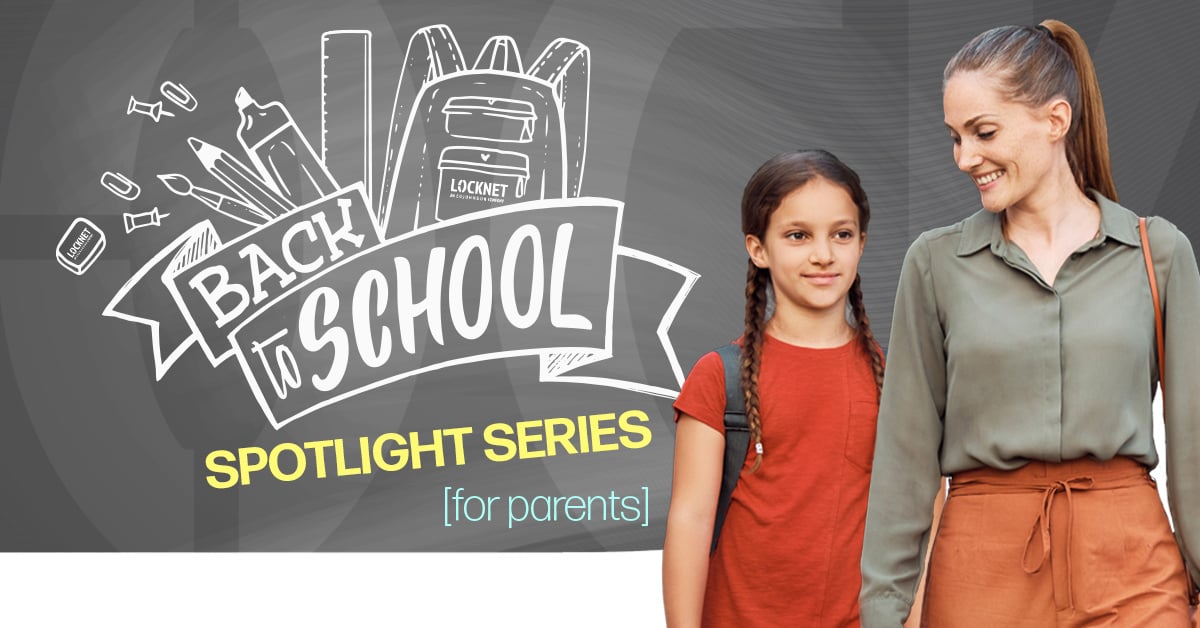Industries We Serve
World Class IT Support & Service
Real People. Right Now.
About Locknet® IT Services
From the first hello, the Locknet® team is dedicated to serving you and your needs.
Real People. Right Now.
From the first hello, the Locknet® team is dedicated to serving you and your needs.


Parents and guardians face an enormous challenge today in raising kids who are often more tech-savvy than we are. Our kids have access to more information, entertainment, and people than previous generations could even imagine. The good news is that you do not need to be a tech expert to raise good digital citizens. In the third part of our back-to-school series, we provide four important tips for parents and guardians regarding online safety, digital citizenship, and data privacy.
Communication. Kids see their online and offline lives as interconnected, so your discussions with them should be also. Incorporate technology as a topic in your family’s discussions about values and goals. Be involved, know the online environments your children are a part of, and show an interest in who they interact with online. Talk to your kids and set expectations for acceptable use of technology before allowing access to a new device, game, or app. Use online situations as teachable moments but also support the positive choices they make. It’s important to acknowledge the benefits and convenience technology provides kids – to stay connected with friends, socialize with gaming, streaming videos, and online research for school. Recognizing the value of technology and staying calm when issues arise will help keep the lines of communication open with your kids.
Know your devices and apps. Take a comprehensive look at all the devices your child might be on like their phone, laptop, smart TV, and gaming console. Be sure strong passwords and privacy settings are in place for all of them and that you also have access to all the passwords. While you empower them to make responsible choices online, you should also have access to periodically check comments, messages, and images. The goal is to guide and protect them – to be seen as a mentor, not just a monitor.
New apps are introduced all the time, and it’s hard to keep up with what kids are using to connect. Most provide your child with some level of positive social engagement, but many can also have downsides that should be considered. Brush up on social media 101 and do some social media research before allowing your child to download a new app. Did you know there are secret apps? If you haven’t heard of audio manager, vaulty, or the seemingly innocuous calculator% app, it’s time to do a little more research. One easy tip is to add your teen to your iCloud account. Whenever a new app is downloaded on your kid’s phone, it will show up on yours too. This will give you an alert, so you can research it further and have the necessary discussion with your child.
Digital Citizenship. The most important thing parents and guardians can do is to educate them about digital citizenship and be positive digital role models. Teaching your kids about the golden rule carries over into their online interactions as well. Explain the potential consequences of cyberbullying, oversharing, or inappropriate sharing. The internet is public and all digital information shared can be taken. Helping them understand the things they share online can create a digital footprint and impact their reputation, friendships, college admissions, and even future employment. Model important things like limiting screen time, putting your phone away while driving, and not over-sharing on social media. Encourage them to make good, safe choices for themselves and to support their friends in doing the same.
Education and Data Privacy. It’s important to be aware of the data collection that happens at your child’s school and the laws that protect you and your student. Many school forms require personal and sometimes sensitive information. Your child’s personal information is protected by law and safeguarding your child’s information can help minimize the risk of identity theft. There are three federal privacy laws parents should be aware of.
If you aren’t sure how your child’s school is handling data privacy or why specific information needs to be collected, be sure to ask.
It will be up to your family to decide what will work best for protecting your kids online and guiding them to become good digital citizens. There are many resources available to parents and guardians to help start these conversations and solidify a technology plan with your kids. Some resources include developing a family technology use agreement or developing an internet safety pledge. And maybe the most important tip – start early!
Managed IT

Onalaska, WI Waterloo, IA Wausau, WI Eau Claire, WI Burnsville, MN
You are now leaving locknetmanagedit.com. Please check the privacy policy of the site you are visiting.